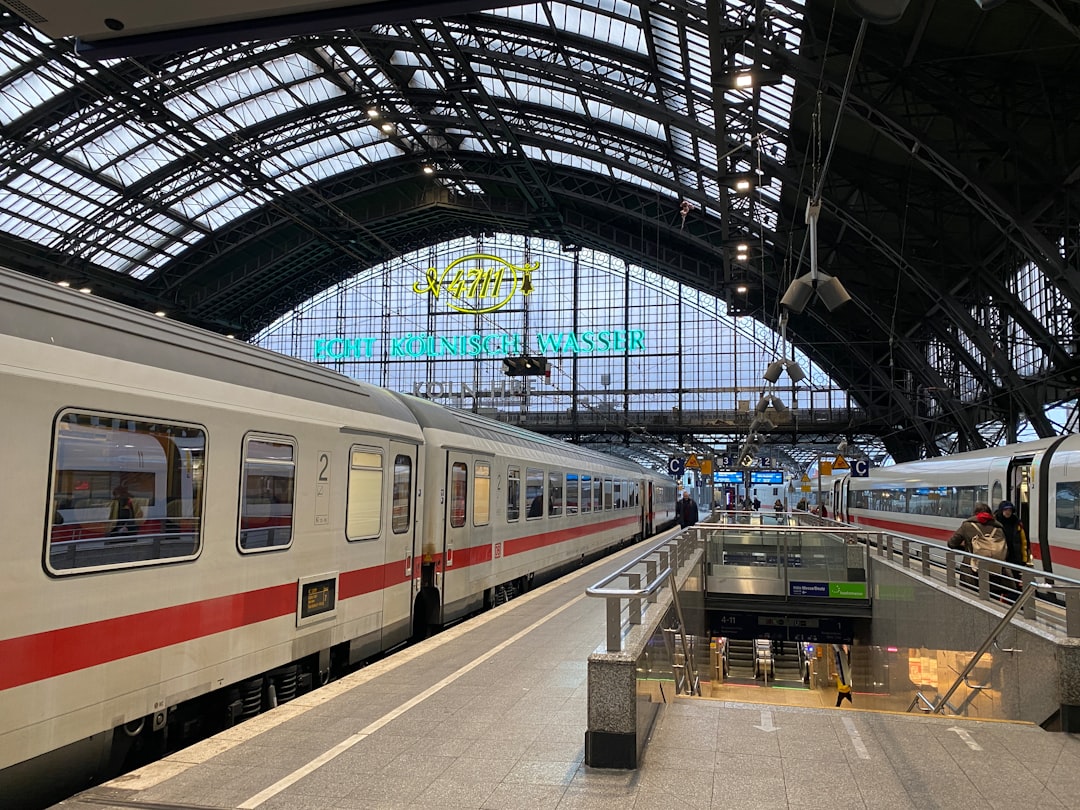Stretching Your Euros: Tips for an Affordable German Holiday on a Budget
Stretching Your Euros: Tips for an Affordable German Holiday on a Budget - Couchsurfing and House-sitting
One of the best ways to save money while traveling in Germany is to couchsurf or house-sit. Couchsurfing connects travelers with hosts who offer up a spare sofa or floor space for free. House-sitting involves living in someone's home and caring for their pets or plants while they are away. Both options provide free accommodation and allow you to experience daily life with locals.
Couchsurfing used to be an underground movement, but the practice has become more mainstream in recent years. The Couchsurfing website and app make it easy to find hosts in cities around Germany. You create a profile highlighting your interests and personality. You can then search for potential hosts, read their profiles and references from past surfers, and send requests to stay.
The community aspect is a big part of couchsurfing. Most hosts enjoy meeting travelers and sharing their city. They may invite you along to social events, give recommendations, or even cook you a meal. As a surfer, you should also come prepared to engage with hosts, not just show up for a free place to crash. Bring a small gift, offer to cook or help around the house, and be open to new experiences.
House-sitting also connects you with locals, albeit in a different way. Homeowners often need help caring for pets or plants when they travel and are happy to provide free accommodation in exchange. Sign up on a house-sitting platform like TrustedHousesitters, create a profile showcasing your experience and love of animals, and apply for gigs.
Responsibilities vary, but usually involve tasks like walking dogs, feeding pets, watering plants, collecting mail, and other basic upkeep. Many house-sits are in cool neighborhoods or even small villages outside big cities. You get a unique chance to live like a local. Lengths range from a few days to a few weeks.
What else is in this post?
- Stretching Your Euros: Tips for an Affordable German Holiday on a Budget - Couchsurfing and House-sitting
- Stretching Your Euros: Tips for an Affordable German Holiday on a Budget - Go Off-Season
- Stretching Your Euros: Tips for an Affordable German Holiday on a Budget - Take Advantage of Free Museums
- Stretching Your Euros: Tips for an Affordable German Holiday on a Budget - Stroll Through Christmas Markets
- Stretching Your Euros: Tips for an Affordable German Holiday on a Budget - Travel By Train
- Stretching Your Euros: Tips for an Affordable German Holiday on a Budget - Eat Street Food
- Stretching Your Euros: Tips for an Affordable German Holiday on a Budget - Hike Instead of Tour
- Stretching Your Euros: Tips for an Affordable German Holiday on a Budget - Drink Local Beers
Stretching Your Euros: Tips for an Affordable German Holiday on a Budget - Go Off-Season

One of the best ways to save on your German holiday is to travel during the off-season months. High season in Germany runs from June through August, when you'll find peak crowds and prices. Visiting in the spring, fall, or winter means fewer tourists, lower hotel rates, and cheaper flights.
Late spring (May) is a wonderful time for an affordable German trip. The weather is mild, flowers are blooming, and you'll get to experience local traditions like Maifest beer celebrations. Airfare and hotels are noticeably cheaper than in summer. Sights may still be less crowded as well, especially at big draws like Neuschwanstein Castle. Just bring layers to handle occasional chilly weather.
Early fall (September-October) is also ideal for stretching your budget. The summer crowds have gone home, but the weather is still pleasant for strolling Christmas markets and biergartens. Airfare and hotels drop significantly right after Labor Day weekend in the U.S. You'll also find great deals on tourist cards and public transportation passes. Pack a light jacket as autumn progresses.
Late fall into early winter (November-December) means experiencing Germany's charming Christmas markets and holiday traditions on the cheap. Flights and hotels are at their lowest rates outside of the Christmas/New Year's rush. Bundle up as temperatures drop, but enjoy the festive, cozy ambiance of sipping mulled wine amidst the twinkling lights of the markets.
Even Germany's high winter season (January-February) can be surprisingly affordable with proper planning. Look for hotel and tour deals promoted to attract off-season visitors. Fly mid-week instead of weekends for cheaper airfare. Pack thermal layers and your winter coat, but don't let cooler temperatures deter you from enjoying carnival celebrations and historic small towns dusted with snow.
No matter when you visit, traveling in the off-season provides big savings as well as a more relaxed, less crowded experience. You can avoid hordes of summer tourists and really soak up Germany's local culture. Just be flexible with your packing and sightseeing schedule - bring appropriate clothes for the weather and confirm attraction operating hours in advance since some close or have reduced hours outside of peak visitor months.
Stretching Your Euros: Tips for an Affordable German Holiday on a Budget - Take Advantage of Free Museums

One of the best ways to stretch your budget in Germany is to take advantage of the many free museums. With world-class art collections and fascinating history, Germany's museums offer an incredible cultural experience. The good news is many provide free entry on certain days or times, allowing budget travelers to soak up the arts and culture without blowing their budget.
Berlin is a top museum destination, boasting some of Germany's most impressive collections. Many major Berlin museums, including the Pergamon Museum, Neues Museum, and Altes Museum, offer free admission on the first Monday of each month. Arrive when doors open to avoid long lines. The German Historical Museum also provides free entry on the first Sunday of each month. Time your Berlin trip right to maximize your free museum access.
Beyond Berlin, museums across Germany have instituted free times and days. In Munich, you can visit the Deutsches Museum's exhibitions and collections for free on Sunday mornings. Frankfurt's Städel Museum of art offers free admission on Tuesdays. Dresden's famous art museums, including the Old Masters Picture Gallery, provide free entry for those under 17 and students every day.
Keep an eye out for city-wide free museum days as well. For example, Nuremberg offers free admission to all municipal museums on the first Sunday of each month. Weimar waives entry fees on the first Saturday of the month. Hamburg lets you experience its best museums at no cost when you grab a Hamburg Card. Utilizing these promotions allows you to get a taste of German art and history without draining your wallet.
Even when paying full price, most state-run museums in Germany are an incredible value compared to other countries. A one-day pass to Berlin state museums generally runs under 20 euros. Single entry to the massive German Museum in Munich will only set you back around 12 euros. For art lovers, buying a multi-museum pass provides access to places like the Alte Pinakothek and Neue Pinakothek in Munich for just 12 euros. Compared to what you'd pay at major art institutions in Paris, London, or New York, it's a bargain.
Stretching Your Euros: Tips for an Affordable German Holiday on a Budget - Stroll Through Christmas Markets

One of the most magical experiences Germany has to offer is strolling through its charming traditional Christmas markets. These holiday markets pop up in town squares across the country each Advent season. Lined with wooden stalls selling handmade crafts, warming drinks, and sweet treats, the markets exude a cozy, festive spirit that offers budget travelers a taste of local culture.
Wandering the stands lets you find unique holiday gifts, like smoked glass ornaments from Lauscha or nutcrackers from Seiffen. Sip a mug of steaming glühwein or hot spiced cider as you browse. The scent of roasted nuts and gingerbread fills the air. Kids can ride old-fashioned carousels, meet St. Nicholas, and craft holiday keepsakes. Live music and performances add to the cheer.
The largest and most famous Christmas markets are in Nuremberg and Dresden, but you'll find enchanting markets even in small villages. Each has its local flair. Munich's medieval market has a more traditional Bavarian vibe, while Berlin's trendy markets offer cool artisan gifts. There are beautiful seaside markets in northern coastal towns like Lübeck and Rostock too.
Aim to visit smaller towns to escape crowds and inflated prices. Markets in places like Görlitz, Goslar, and Quedlinburg offer a cozier, more intimate ambiance. Accommodations and food cost less too.
You can easily fill an entire day strolling, snacking, and soaking up the one-of-a-kind atmosphere. Come at night when lights twinkle to really experience the magic. Bundled in your coat, gloves, and hat, you'll be warmed by the holiday spirit.
Visiting Germany's Christmas markets between late November and Christmas provides budget travelers a memorable German cultural experience, without breaking the bank. Airfare and hotels are cheaper in winter too. Indulge in the markets' glühwein, sweets, and handicrafts for just a few euros each. With all expenses added up, savoring Germany's beloved markets can cost less than a trip in peak season.
Stretching Your Euros: Tips for an Affordable German Holiday on a Budget - Travel By Train

Traveling by train is one of the most affordable, eco-friendly ways to get around Germany on a budget. Thanks to an extensive, efficient rail network, you can rely on trains to whisk you between cities and towns across the country. Best of all, Deutsche Bahn and other regional providers offer great deals to help you keep costs down.
Deutsche Bahn is Germany's national railway and your best source for discounted train travel. Their website and app make booking simple. Look for Sparpreis Europa fares for major savings on long-distance routes, with prices starting around €29 each way between big cities like Munich and Berlin. They also offer regional saver fares like Länder-Tickets to explore a particular state affordably.
The incredibly useful BahnCard cuts 25-50% off all Deutsche Bahn train trips for a year. Just doing the math, the card pays for itself quickly if you plan on hopping more than a few trains. It's well worth buying one if you'll be train tripping through Germany.
Another great option is the German Rail Pass, which allows unlimited travel for a set number of days over the course of a month. Get the Youth version if you're under 26 and save more. For just €265 for 4 days of travel in a month, it's an incredible deal to see a lot of ground.
Once in Germany, individual states also promote great regional train tickets. Bayern-Tickets cover unlimited transport throughout Bavaria for up to 5 people at just €25 per day. There are similar day passes for other states. Utilizing these can save you tons of euros on intra-country transport.
Train travel also allows you to see more of the true countryside between destinations. Watch rolling hills peppered with castles give way to wide rivers as you head into new regions. Soak up views you'd never experience zipping along the autobahn.
You can work productive hours with reliable wi-fi and outlets on board rather than just staring out an airplane window. Walking around is encouraged, and there's usually a dining car where you can grab a bite. Night trains let you rest in a sleeper cabin as you travel.
Opting for train travel is also an environmentally responsible choice. Journeying by rail rather than flying produces a fraction of the carbon emissions - less than 1/14th on average. And it eliminates the need to rent a car once you're in Germany.
Fellow budget travelers consistently praise Germany's trains for being comfortable, punctual and affordable. On message boards, they share stories of crisscrossing the country on Eurail passes, snagging cheap DB saver fares, and taking convenient overnight trains between cities.
One user said the efficiency of the trains allowed her to pack in more destinations on a two week trip than she thought possible, all for not too much more than the petrol costs of driving a car. Another traveler raved about how riding trains helped her reduce her carbon footprint while exploring Germany's incredible landscapes.
Stretching Your Euros: Tips for an Affordable German Holiday on a Budget - Eat Street Food

Indulging in street food is one of the tastiest ways to experience local German cuisine on the cheap. Skip the pricey sit-down restaurants and head to the curbsides, plazas, and markets where everyday Germans line up for flavorful fast foods. You can assemble entire meals by sampling regional specialties from various vendor stands.
In Berlin, track down Currywurst, the cult street food beloved by locals. These plump, fried pork sausages get smothered in savory tomato curry sauce. Pair it with crispy fries doused in sauce for a quintessential Berlin street bite. Prices hover around €2-3. For snacks on the go, nibble on greasy Schrippen mit Schinken, crusty rolls stuffed with ham and cheese. Berliners also swear by Döner Kebab, tasty Turkish-style stuffed flatbreads, best grabbed after a night out.
Munich street food stars hearty Bavarian favorites like giant soft pretzels and Weisswurst sausages. At Viktualienmarkt, the sprawling open-air food market, you can feast on just-fried potato pancakes with apple sauce for under €5. Get your pork knuckle fix by ordering a takeaway version known as Steckerlfisch. Wash it down with local brews bought by the liter.
In Hamburg, fast fish options abound at stands near the docks. Grab some Matjes, pickled herring with sour cream, or marinated raw North Sea prawns. You also can't leave without trying Franzbrötchen, the city's sweet cinnamon-sugar pastry, best devoured harborside.
At Christmas markets across Germany, satisfying street food takes center stage. Vendors dish up piping hot crepes, potato fritters like Kartoffelpuffer, and of course endless brats and currywurst. For sweets, gobble down sugar-dusted churros, warm gingerbread cookies, and cups of mugolo, thick Hot chocolate.
Beyond the major cities, you'll find regional specialties sold from street carts and kiosks. Try Dresden's mustardy potato salad in eastern Germany or fried Black Forest ham rolls in the southwest. Up north, grab herring in Rostock or Mettbrötchen, raw minced pork, in Hamburg.
Eating street food costs just a few euros, putting restaurant meals to shame. You can mix and match bites from different vendors to tantalize your tastebuds. Hunt down beloved items mentioned repeatedly by locals for the real deal. Seek out stands with long lines at peak meal times - that's always a promising sign!
Stretching Your Euros: Tips for an Affordable German Holiday on a Budget - Hike Instead of Tour
Looking to immerse yourself in Germany's incredible natural landscapes, but don't want to blow your budget on packaged tours? Then lace up your boots and opt for self-guided hiking instead. Wandering Germany's extensive trail networks allows budget-conscious travelers to soak up stunning alpine vistas, explore fairy tale forests, and experience exotic ecosystems at little to no cost.
Germany boasts over 200,000 kilometers of marked hiking trails, ranging from easy lakeside rambles to challenging high-altitude treks in the Alps and beyond. Scenic routes wind through the forest-cloaked hills and valleys of the legendary Black Forest region. Up north, flat sandy paths lead you through the National Park Jasmund's dramatic chalk cliffs rising from the Baltic Sea. Bavaria's jewel, Neuschwanstein Castle, can be reached via a picture-perfect mountain hike.
With trails everywhere from big cities like Berlin to tiny half-timbered villages, hiking opportunities abound. Consult sites like Wandern.de to discover recommended routes, download GPX tracks, and find local hiking groups to join. Many trails intersect with public transportation as well, so you can easily bus or train to trailheads.
Once on the paths, all you need is sturdy shoes, water, snacks, and navigational apps like Maps.Me. Follow trail markers painted on trees and stones. Download maps to use offline when cell service disappears in remote areas. Safety apps like GeoZentrum alert local rescue teams if anything goes awry.
Fellow budget hikers rave about the quality of German trails. User @wanderlust_james was thrilled to tackle challenging alpine hikes in Bavaria for free after paying hundreds for guided treks in Switzerland. @adventure_emily described incredible trails from virgin forests to roaring waterfalls in the Black Forest region, made accessible by regular public bus routes.
Others praise Germany's hiking infrastructure. @bootsandbackpacks loved staying at affordable trailside huts like those maintained by the German Alpine Club. @germany_explorer was grateful for the detailed signposting, trailside conveniences like benches and toilets, and local trail organizations that made independent hiking easy for newcomers.
Stretching Your Euros: Tips for an Affordable German Holiday on a Budget - Drink Local Beers

Sipping local German brews offers budget-minded beer lovers a tasty way to connect with regional traditions for just a few euros. Thanks to Germany's proud beer heritage spanning over 1000 years and strict purity laws governing ingredients, small-scale breweries turn out distinctive brews that showcase local agriculture and stylistic diversity.
Seeking out these microbreweries helps you experience Germany's beer culture far beyond the ubiquitous mass-market lagers. With pints costing around €3-5 and brewery tours or tastings just €5-15, you can dive into Germany's dynamic beer scene without draining your wallet. It's also a chance for intimate interactions with passionate brewers putting culinary craftsmanship first.
Fellow budget travelers seeking local flavor highly recommend budget beer explorations in Germany. User @craftbrew_wanderer discovered funky hidden brewhouses all over Berlin churning out incredible unfiltered Kellerbiers and potent Dampfbiers for what he'd pay for a watery pils at home. He took advantage of affordable brewery tours to learn about Germany's beer purity laws firsthand while getting free samples.
Others open up unexpected sides of German cuisine and culture. @beeryoga recommends Franconia's rauchbier, an unusual smoked beer with bacon notes, as the perfect pairing for the region's meat-heavy fare. @history_hops_n_barley unearthed nearly-extinct heirloom beer styles produced for centuries in rural areas; at an abbey in Bavaria, monks still brew bocks based on medieval recipes.
Not just about drinking, budget beer explorations provide opportunities to meet locals and find non-touristy spots. User @eurail_ale_explorer took overnight trains between small towns to visit microbreweries where senior citizens gathered for their regular brew. @BudgetBeerHunter got invited to a village festival while chatting with an alley brewpub's owner.
Travelers repeatedly praise Germany for making quality local beer easily accessible for those on tight budgets. Users describe stumbling upon small-town breweries by following charming cobblestone streets rather than tourist routes. @BierUndKäse enjoyed how regional rail passes got him directly from city centers to small villages with prized breweries. @GirlGoesToGermany found excellent local beer at small-town gas stations when hiking between half-timbered hamlets.
